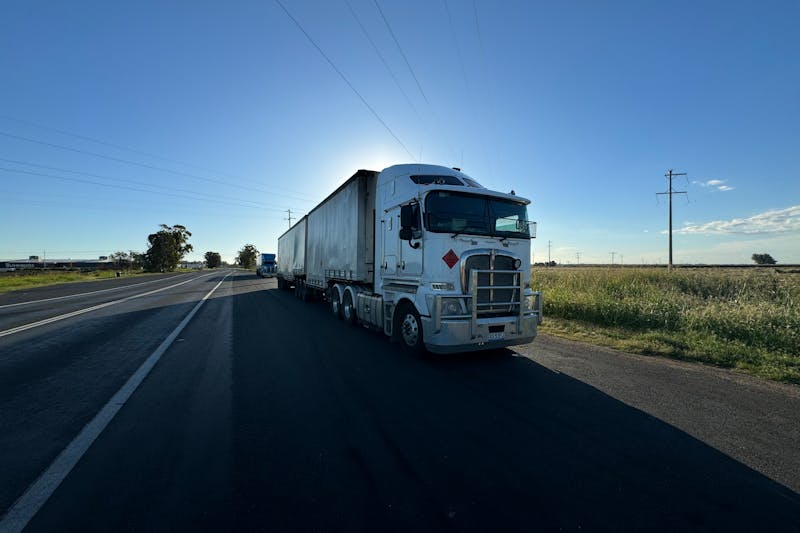Tennessee’s Push for Carbon Monoxide Safety in Daycares

Carbon monoxide is often referred to as a “silent killer” because it is odorless, colorless, and tasteless, making it virtually undetectable without proper equipment. This dangerous gas can cause severe injuries or even death, especially in vulnerable populations such as young children.
Tennessee lawmakers are considering a bill to mandate carbon monoxide alarms in daycare facilities, aiming to prevent tragedies and enhance safety standards for children.
Attorney Jim Higgins of The Higgins Firm recently appeared on TV to discuss the importance of this proposed legislation. Below is the full transcript of his conversation with Heather Mathis.
Heather Mathis: It’s called a silent killer—carbon monoxide poisoning. It’s dangerous for everyone, but especially for children. Tennessee lawmakers are considering a bill that mandates the installation of carbon monoxide alarms in daycare facilities to enhance safety standards. Attorney Jim Higgins with The Higgins Firm is here to tell us more. Jim, why is this proposed bill so important, and how could it help keep kids safe?
Jim Higgins: Oh, you know, it is so important. It is so easy, and it’s not crazy expensive. Over the years, some of the toughest cases my office has handled have been carbon monoxide cases. We’ve had wrongful death cases from it. We’ve had cases involving kids at schools and daycares, even at a swimming pool. You can’t smell it, you can’t see it, and you can’t feel it. To not have a carbon monoxide detector in a daycare or a school—there’s absolutely no reason for that. Those little children are so susceptible to it. A lot of times, in these cases, the symptoms might start as something like a headache, and it can take a while to determine what the long-term injuries might be.
Heather Mathis: It’s surprising that, as you mentioned, they don’t already have these detectors in place. Do you think there’s going to be any pushback to this bill?
Jim Higgins: You know, I’m really hoping not. We had a big fire in a nursing home years ago, and it took a lot of work to get the law passed to put sprinklers in because courts often have to deal with the expense issues. But, you know, you can go to any department store and get one of these detectors relatively cheap. There’s no need not to have them.
Heather Mathis: Real quick—if someone you know has suffered from carbon monoxide poisoning, how quickly should they contact The Higgins Firm?
Jim Higgins: Immediately. You’ve got to get the tests and the treatment done right away. It doesn’t cost anything unless we win, but they are tough cases to deal with.
Heather Mathis: All right, Jim. For more information, you can visit TheHigginsFirm.com.
Table of Contents
Carbon Monoxide Lawsuits in Tennessee
If someone has suffered injuries or died as a result of carbon monoxide poisoning, the affected party or their family may be eligible to file a lawsuit seeking compensation. However, these cases are complex and require specific elements to be proven. The following components are typically necessary to establish liability in a carbon monoxide poisoning case:
- Proving Negligence: The plaintiff must demonstrate that the defendant had a duty of care to prevent carbon monoxide exposure but failed to fulfill that duty. For instance, daycare centers, schools, and landlords are responsible for maintaining safe premises, including proper ventilation and installing carbon monoxide detectors.
- Causation: It’s critical to link the exposure to carbon monoxide with the injuries or damages sustained. This often involves medical tests to confirm carbon monoxide poisoning and evidence that the poisoning occurred due to the defendant’s negligence.
- Damages: To recover compensation, the plaintiff must show that they suffered measurable damages, such as medical expenses, lost wages, pain and suffering, or, in wrongful death cases, funeral costs and loss of companionship.
- Product Liability: In some cases, faulty appliances or defective carbon monoxide detectors may play a role in exposure. Proving product liability involves demonstrating that the product had a defect in design, manufacturing, or labeling, which directly contributed to the incident.
- Expert Testimony: Carbon monoxide cases often rely on expert witnesses, such as medical professionals, toxicologists, and engineers, to provide insight into the cause of exposure, the resulting injuries, and the long-term effects.
Carbon monoxide poisoning cases require immediate attention to preserve evidence and document injuries. Blood tests, medical records, and photographs of the premises can play a crucial role in building a strong case. Delaying legal action can make it harder to establish liability and recover compensation. At The Higgins Firm, our premises liability attorneys in Nashville are prepared to guide victims and their families through every step of the legal process.
Protecting the Most Vulnerable
The proposed legislation mandating carbon monoxide alarms in daycare facilities is a step toward preventing needless tragedies. As Attorney Jim Higgins pointed out, these detectors are affordable and accessible, making their absence in childcare facilities unacceptable. Ensuring that children are safe from this invisible danger is not just a moral obligation but also a legal one.
For more information about carbon monoxide poisoning lawsuits or to learn about your legal rights, visit TheHigginsFirm.com or contact our office directly.




![Average Settlement for Car Accidents in Nashville [What to Expect in 2025]](https://www.thehigginsfirm.com/wp-content/uploads/2025/03/car-accident-settlement.jpg)
